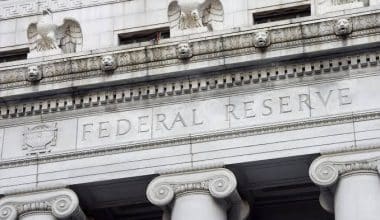Retail and commercial banking are two sides of the same coin that provide different customer bases with banking services and products. Although most banking institutions have both a retail and a commercial division, retail banks serve retail customers while commercial banks serve corporate and business customers. It’s crucial to understand the distinctions between retail and commercial banking services. In this article, we define retail banking, discuss its salary, and provide an overview of retail banking vs. commercial banking, summarizing the services they provide and discussing similarities and differences between the two banking services.
What is Retail Banking?
Retail banking, also known as consumer banking or personal banking, is banking that provides financial services to individuals rather than businesses. Retail banking allows individual consumers to manage their money, obtain credit, and deposit funds securely. Checking and savings accounts, mortgages, personal loans, credit cards, and certificates of deposit are just a few of the services provided by retail banks.
How Retail Banking Works
Retail banks handle financial needs for everyday spending and life events like home purchases. Retail banks offer the following products and services:
#1. Bank accounts:
Checking, savings, and money market accounts are examples. Checking accounts frequently include debit cards for making purchases. They allow you to pay your bills online or electronically. Savings and money market accounts provide higher interest rates than checking accounts, but they often have withdrawal and transfer limits.
#2. Certificates of Deposit (CDs):
They give higher interest rates than savings accounts, but you must usually keep your money untouched for at least many months to avoid early withdrawal penalties.
#3. Credit cards:
These cards are similar to debit cards in that they allow you to purchase items now and pay for them later. They indicate a loan that must be repaid. If you do not pay the full amount listed on your statement within the grace period, you will be charged finance charges based on the card’s annual percentage rate (APR).
#4. Safe deposit boxes:
These are storage areas where tiny valuables and essential documents are kept so they cannot be stolen or damaged in your home.
#5. Mortgages:
These items assist customers in purchasing or refinancing a home. Second mortgages allow consumers to borrow money against an already mortgaged property by utilizing the equity in their home as collateral.
#6. Unsecured personal loans:
Any purpose can be served by these goods. You are not required to pledge collateral. Revolving lines of credit (including credit cards) allow borrowers to spend and repay frequently without asking for a new loan each time they need to access funds.
Not all banks provide all of these services. Before opening an account, go over a bank’s website or speak with a representative regarding its service offerings.
Personal banking services are the main focus of retail banks. Serving businesses is the main focus of commercial banks. They may provide many of the same alternatives, but in a size that is appropriate for commercial purposes. Both commercial and retail banking services are offered by several institutions.
How a Retail Bank Generates Income
A retail bank stores its retail clients’ cash deposits. It then uses these deposits to make loans to other clients. Previously, the Federal Reserve mandated all banks to maintain 10% of their demand and check deposits in-house overnight; this requirement was reduced to 0% in March 2020. This is referred to as the reserve requirement, and it is seen as a safety and liquidity safeguard. This means that the remaining deposits may be lent out. Banks charge greater interest rates on these loans than they do on consumer deposits, which is how banks make money.
The Federal Deposit Insurance Corporation (FDIC) insures bank deposits for consumers in the banking industry. As of March 31, 2021, the FDIC insured 4,978 institutions, including commercial banks and savings banks. The entire amount of assets insured by the FDIC was $22.6 trillion, and the total amount of loans insured was $10.86 trillion.
Types of Retail Banks
Retail banks range from small, locally owned community banks to the retail banking services of huge, worldwide corporate banks like JPMorgan Chase and Citibank.
The top five largest commercial banks in the United States by assets as of March 31, 2021, were:
- Chase JPMorgan
- Bank of America
- Wells Fargo
- Citibank
- U.S. Bank
All of these banks provide retail banking services, which account for a significant amount of their revenue. Credit unions are a sort of retail bank that functions as a non-profit cooperative in which members pool their assets to provide loans and other financial services to other members. Credit unions often offer cheaper interest rates to their members because they are not-for-profit corporations and do not have to pay corporate taxes on any gains.
Retail Banking vs Commercial Banking
While retail banking services are available to the general public, corporate banking services are exclusively available to small and large businesses. Commercial banking vs. retail banking both provide products and services to different types of customers. While the services they provide are fairly similar, the scope of their services is tailored to their customer’s demands.
Corporate banks offer the following services to businesses:
- Loans and other credit products
- Treasury and cash management services
- Lending of equipment
- Commercial property
- Finance for trade
- Employer services
Several corporate banks also include investment banking divisions that provide services to their corporate clients, including asset management and securities underwriting.
Retail banking and commercial banking share several similarities:
- They both offer deposit accounts, such as checking and savings accounts, for their customers to handle their money.
- Both credit and debit cards are accepted.
- They both offer loans.
- Online and mobile banking are also available from both of them.
Here are some distinctions between the two:
- In contrast to commercial banking, which serves businesses and corporations, retail banking serves individuals and the general public.
- Retail banks provide customer-oriented products and services such as personal loans, vehicle loans, and home loans, whereas commercial banks provide corporate and business-related financial services such as merchant services, global trade services, and employee benefits plans.
- Retail banks offer standardized products and services. Comparatively, commercial banks tailor their products and services to the demands of their customers.
Retail Banking Salary
The average annual salary for a Retail Banker in the United States as of March 23, 2023, is $29,652. In case you need a quick salary calculation, that comes out to about $14.26 per hour. This equates to $570 every week or $2,471 per month.
While ZipRecruiter reports yearly wages as high as $38,500 and as low as $22,000, the bulk of Retail Banker salaries in the United States now ranges from $25,000 ((the 5th percentile) to $34,500 (75th percentile), with the highest earners (90th percentile) getting $38,000. The average salary range for a Retail Banker varies significantly (by up to $9,500), suggesting that there may be numerous prospects for growth and increased pay dependent on skill level, region, and years of experience.
The Retail Banker employment market in Atlanta, GA, and the surrounding area is quite active, according to recent job posts on ZipRecruiter. Your area’s average yearly salary for a Retail Banker is $29,355, which is $297 (1%) less than the national average salary of $29,652. Georgia ranks 49th out of 50 states in terms of compensation for Retail Bankers.
Expanded Services in Retail Banking
Banks are expanding their product offerings to offer a broader range of services to their retail customers. Banks are adding teams of financial advisers with expanded product offerings, including wealth management, brokerage accounts, private banking, and retirement planning, in addition to conventional retail banking accounts and client support from financial representatives at local branch locations.
Online banking has broadened retail banking options in the twenty-first century. Several banks now offer online services to consumers only over the Internet and mobile applications, reducing the number of times a customer must visit a local office to conduct business.
In addition to traditional banks providing online services, several new fintech companies have emerged, providing similar services with more simplicity and, in many cases, at lower pricing, because they do not bear the overhead of traditional brick-and-mortar bank branches. N26, Monzo, and Chime are examples of these banks.
Alternatives to Retail Banking
Retail banks’ consumer banking services make it easier for people to manage their accounts, notwithstanding the price. It is feasible to live without a bank account, but it will be more challenging. Without retail banks, you might spend more time on financial tasks. One-time transactions may incur higher fees.
There are other types of banks than retail banks. In truth, you must rely on other sorts of banks for some services because retail banks do not provide them.
- Central banks: These institutions function as the central government’s financial agents, controlling the country’s money supply and international reserves. Among its activities are the issuance of currency and the holding of deposits from other banks or central banks.
- Commercial banks: These banks focus on business customers. They may provide services that retail clients require, such as checking and savings accounts and loans, but they also cater to the specific demands of businesses, such as the ability to borrow bigger sums of money for operations and the need to accept other methods of payments from customers.
- Credit unions: These small banks provide many of the same services as large banks, but they are frequently nonprofit institutions that serve a group of people who share a common interest, such as an employer or a labor union.
- Investment banks: These financial institutions assist businesses in operating in the financial markets. An investment bank may assist a company in raising funds by issuing bonds to an investor.
Several banks operate in multiple markets. Retail banks, commercial banks, and investment banks all exist simultaneously. You may be able to open a business account at the same retail bank where you already have a personal account.
What is the difference between banking and retail banking?
Whereas corporate banking is a branch of the banking sector that deals with corporate clients, retail banking is the segment of a bank that deals directly with retail consumers. With bank branches in almost every major city, retail banking is the public’s first impression of banking.
What does a retail banker do?
Retail bankers are frequently referred to as customer service representatives or personal bankers due to the role’s customer-focused aspects. They work for high-street banks, where they provide financial advice to customers, recommend appropriate products and services, and help them with banking needs.
What are the 5 C of retail banking?
Lenders evaluate your loan application based on the 5 Cs: Capacity, Capital, Collateral, Conditions, and Character.
What are the 4 types of banking?
- Retail Banks.
- Commercial Banks.
- Credit Unions.
- Private Banks.
- Online Banks.
- Savings and Loan Associations.
- Shadow Banks.
Conclusion
Retail banks provide their customers with a wide range of products and services. People typically picture retail banks when they think about banks. There are bank branches in every city in the country that provide banking services to the general people. Checking and savings accounts, mortgages, personal loans, credit cards, and certificates of deposit are among the most popular services provided by retail banks (CDs).
Related Articles
- PREPAYMENT: Meaning, Best Cards, Penalty, Property Tax & Guide
- RETAIL BUSINESS: Definition, Types & How to Start It
- Retail Customer Experience: Definition & All You Need To Know
- CORPORATE BANKING: How It Works
- HOW DO BANKS MAKE MONEY: All You Need To Know






